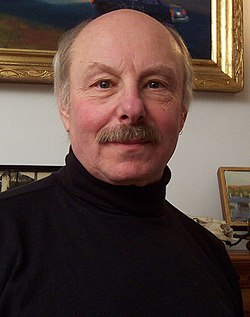James Howard Kunstler Quote
History is moving the furniture around in the house of mankind just about everywhere but the U.S.A. Things have changed, except here, where people come and go through the rooms of state, and everything looks shabbier by the day, and lethargy eats away at the upholstery like an acid fog, and the walls reverberate with meaningless oratory.
James Howard Kunstler
History is moving the furniture around in the house of mankind just about everywhere but the U.S.A. Things have changed, except here, where people come and go through the rooms of state, and everything looks shabbier by the day, and lethargy eats away at the upholstery like an acid fog, and the walls reverberate with meaningless oratory.
Related Quotes
This is a day of celebration!Today, we are divorcing the pastand marrying the present.Dance,and you will find Godin every room.Today, we are divorcing resentmentand marrying forgiveness.Sing,and God w...
Kamand Kojouri
Tags:
accept, acceptance, apathy, beloved, bitter, bitterness, celebrate, celebrating, celebration, ceremony
About James Howard Kunstler
James Howard Kunstler is an American writer, social critic, public speaker, and blogger known for his analysis of urban development, suburbanization, and energy issues. Born in New York City to Jewish parents, he gained prominence through his non-fiction works critiquing American suburban development and predicting societal changes based on resource constraints. His most influential books include The Geography of Nowhere (1993) and Home from nowhere (1996), a critical examination of American suburbia and urban planning, The Long Emergency (2005) and Too Much Magic (2012), which explore the potential consequences of peak oil and energy depletion on modern civilization and humanity's over-reliance on technology to solve problems. Kunstler's work has become standard reading in architecture and urban planning courses, and he has been a prominent spokesperson for the New Urbanism movement.
Throughout his career, Kunstler has authored both fiction and non-fiction works, including a series of post-apocalyptic novels beginning with World Made by Hand (2008) that envision a future of localized, low-energy communities. As a journalist, he has written for major publications including The Atlantic, Rolling Stone, and The New York Times. His political views have evolved significantly over time, transitioning from harsh criticism of conservative politics to more recent support for certain conservative positions and skepticism of mainstream Democratic policies. While his peak oil predictions proved premature due to technological developments like fracking, Kunstler continues to advocate for sustainable urban planning, improved rail infrastructure, and preparation for what he sees as inevitable resource constraints, maintaining his influence through writing, speaking engagements, and online commentary.
Throughout his career, Kunstler has authored both fiction and non-fiction works, including a series of post-apocalyptic novels beginning with World Made by Hand (2008) that envision a future of localized, low-energy communities. As a journalist, he has written for major publications including The Atlantic, Rolling Stone, and The New York Times. His political views have evolved significantly over time, transitioning from harsh criticism of conservative politics to more recent support for certain conservative positions and skepticism of mainstream Democratic policies. While his peak oil predictions proved premature due to technological developments like fracking, Kunstler continues to advocate for sustainable urban planning, improved rail infrastructure, and preparation for what he sees as inevitable resource constraints, maintaining his influence through writing, speaking engagements, and online commentary.
